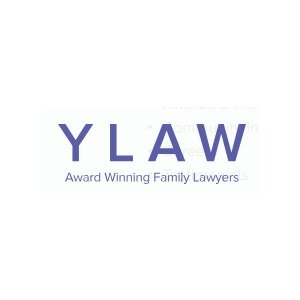Best Water Law Lawyers in Vancouver
Share your needs with us, get contacted by law firms.
Free. Takes 2 min.
List of the best lawyers in Vancouver, Canada
About Water Law in Vancouver, Canada
Water Law in Vancouver, Canada, is a specialized area of law that deals with the ownership, management, use, allocation, and protection of water resources. Governed primarily by provincial legislation, including the British Columbia Water Sustainability Act, Water Law in Vancouver addresses a variety of issues, such as water rights, pollution, conservation, and the interplay between urban development and natural water systems. Property owners, developers, businesses, and local governments all have responsibilities and obligations when using or impacting water resources, making legal advice an important resource when dealing with water-related challenges or disputes.
Why You May Need a Lawyer
There are several situations where individuals or businesses in Vancouver may require legal help concerning Water Law. Common scenarios include disputes over water rights or water access, issues related to drainage or flooding on private or public property, disagreement with government authorities over water use permits, concerns surrounding contamination or pollution of water bodies, and compliance with complex regulatory requirements. Also, if you are facing enforcement actions from a regulatory agency or planning a development that impacts water features, obtaining legal advice can help you understand your rights and responsibilities, minimize risks, and work towards a fair resolution.
Local Laws Overview
Water Law in Vancouver is mainly regulated at the provincial level by the British Columbia Water Sustainability Act, which provides the framework for water rights, licensing, and regulation of water use. Additional relevant statutes include the Environmental Management Act and the Drinking Water Protection Act. Municipal bylaws and regional regulations may also apply, especially concerning stormwater management, local water quality, and development near rivers, lakes, and wetlands. The law distinguishes between surface water (such as rivers, lakes, and streams) and groundwater (wells and aquifers), with different rules and licensing requirements for each. Protection of fish habitat and compliance with federal laws like the Fisheries Act may also be necessary when a project impacts natural water bodies.
Frequently Asked Questions
What is a water licence, and do I need one in Vancouver?
A water licence is a legal authorization required under the Water Sustainability Act to divert and use surface or groundwater for purposes such as irrigation, industrial use, or domestic supply. Most non-domestic water uses require a licence, while household use from a well on your property may not. Always check with authorities for your specific circumstances.
Who owns the water in Vancouver?
In British Columbia, water is owned by the Crown and managed by the provincial government on behalf of the public. Individuals and businesses can obtain rights to use water through licences or permits but do not own the water itself.
Can I divert water from a stream on my property?
Diverting water from a stream or other natural water body almost always requires a licence, regardless of property ownership. Unauthorized diversion is illegal and can result in enforcement action.
What should I do if my property is flooded due to diverted water from a neighbor?
If you believe your property is being flooded due to another person’s actions, you may have legal remedies, such as pursuing compensation or seeking an injunction. Begin by documenting the situation and consult a lawyer experienced in Water Law for advice and possible next steps.
What regulations apply if I want to build near a river or stream?
There are strict setbacks and development permit requirements for building near water bodies to protect public safety and environmental values. Municipal bylaws and provincial regulations may both apply, so consulting with local government and potentially a lawyer before starting any work is essential.
How is water pollution regulated in Vancouver?
Water pollution is regulated under the Environmental Management Act and municipal bylaws. Causing or allowing contamination of water bodies or groundwater can result in substantial fines and cleanup orders. Specific industries may also have sector-specific requirements.
Can I install a private well on my property?
Many properties can install private wells, but there are regulations regarding construction, registration, and use, especially if you intend to use significant amounts of water. Large withdrawals or commercial use may require a licence.
What happens if I ignore water regulations?
Failure to comply with water laws and regulations can lead to stop-work orders, fines, required remediation, or even criminal charges in serious cases. It is strongly advised to seek legal guidance if you are unsure about your legal obligations.
Are there special considerations for agricultural water use?
Agricultural water use is an important exception under provincial law, but most irrigation or livestock watering from streams or aquifers requires a licence. There are also rules for protecting riparian zones and preventing pollution from agriculture.
How does Water Law address Indigenous rights?
Indigenous rights to water are recognized as part of Aboriginal rights and title. These rights may take precedence over other water uses, and there are ongoing processes to reconcile Indigenous interests with provincial water allocation. Legal advice is essential in cases involving First Nations or Indigenous communities.
Additional Resources
- British Columbia Ministry of Water, Land and Resource Stewardship - Water Sustainability Act - Government of British Columbia - Environmental Protection Division - BC Government - Metro Vancouver Local Governments - Fraser Basin Council - Environmental Law Centre (University of Victoria) - Federation of Law Societies of Canada (for finding legal representation)
Next Steps
If you believe you need legal assistance regarding a Water Law issue in Vancouver, begin by gathering as much documentation as possible, including correspondence, permits, maps, and any evidence of the issue or dispute. Contact a lawyer who specializes in Environmental or Water Law to discuss your situation and understand your options. You can use local bar associations or referral services to find experienced legal professionals. In urgent cases, such as potential regulatory enforcement or environmental damage, do not delay in seeking advice and taking appropriate action. A qualified lawyer can help guide you through the complexities of Water Law, protect your interests, and help you achieve a positive outcome.
Lawzana helps you find the best lawyers and law firms in Vancouver through a curated and pre-screened list of qualified legal professionals. Our platform offers rankings and detailed profiles of attorneys and law firms, allowing you to compare based on practice areas, including Water Law, experience, and client feedback.
Each profile includes a description of the firm's areas of practice, client reviews, team members and partners, year of establishment, spoken languages, office locations, contact information, social media presence, and any published articles or resources. Most firms on our platform speak English and are experienced in both local and international legal matters.
Get a quote from top-rated law firms in Vancouver, Canada — quickly, securely, and without unnecessary hassle.
Disclaimer:
The information provided on this page is for general informational purposes only and does not constitute legal advice. While we strive to ensure the accuracy and relevance of the content, legal information may change over time, and interpretations of the law can vary. You should always consult with a qualified legal professional for advice specific to your situation.
We disclaim all liability for actions taken or not taken based on the content of this page. If you believe any information is incorrect or outdated, please contact us, and we will review and update it where appropriate.










